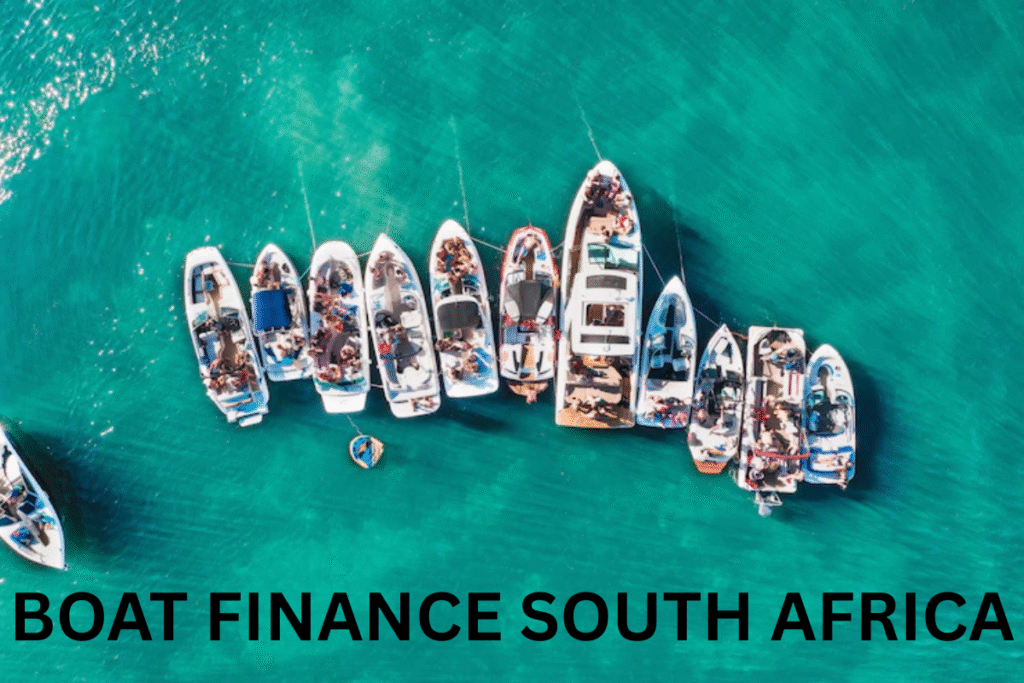Overview : Navigating the Waters of Boat Finance in South Africa
Buying a boat in South Africa is a dream come true for many—whether it’s for weekend fishing trips, family cruises, or marine tourism ventures. However, a boat is a significant investment, and for most, that means turning to boat finance. In this guide, we’ll walk you through everything you need to know about boat finance in South Africa—from types of loans available, eligibility, required documents, top lenders, interest rates, and how to get the best deal.
H2: What is Boat Finance in South Africa?
Boat finance refers to a specialized loan designed to help individuals or businesses purchase a boat, yacht, or other watercraft. Just like car or home loans, boat finance can be structured in various ways with different repayment terms and interest rates.
H3: Why Use Boat Finance Instead of Paying Cash?
- Preserve capital for other investments.
- Flexible repayment terms spread over years.
- Insurance and registration bundled into the financing package.
- Access to newer, more expensive vessels.
H2: Types of Boat Finance Options in South Africa
There are several ways to finance a boat. Understanding your options helps you make a smart, long-term decision.
H3: 1. Secured Boat Loans
This is the most common option. The boat itself acts as collateral. If you default, the lender can repossess it.
Key Features:
- Lower interest rates
- Loan terms up to 72 months
- Suited for new or used boats
H3: 2. Unsecured Personal Loans
Used when the boat value is low or when the buyer prefers not to risk the asset.
Pros:
- No collateral needed
Cons: - Higher interest rates
- Lower maximum loan amount
H3: 3. Balloon Payment Boat Finance
This option offers lower monthly payments, but a large final “balloon” payment at the end.
Ideal for:
- Buyers expecting a large sum (e.g. retirement payout)
- Businesses with seasonal income
H3: 4. Hire Purchase Agreements
You “rent to own” the boat, and ownership transfers after the final payment.
H3: 5. Marine Lease Finance
Used mostly by companies, charter businesses, or high-net-worth individuals leasing luxury yachts.
H2: Top Lenders Offering Boat Finance in South Africa (2025)
Here are trusted institutions offering boat loans:
H3: 1. WesBank
- Offers secured marine finance
- Flexible terms and fixed or variable interest rates
- Bundled with insurance options
H3: 2. ABSA Marine Finance
- Competitive interest rates
- Finance up to 72 months
- Assistance with valuation and registration
H3: 3. Standard Bank Vehicle and Asset Finance
- Covers boats, jet skis, yachts
- Tailored repayment plans
- Optional balloon payments
H3: 4. Nedbank Leisure Finance
- Caters to recreational boat buyers
- Quick application processing
- Offers financing for pre-owned boats
H2: How to Qualify for Boat Finance in South Africa
Getting approved isn’t just about your credit score—although that’s a key factor.
H3: Requirements Include:
- South African ID or valid residence documents
- Proof of income (last 3 payslips or 6 months’ bank statements)
- Good credit score (typically 600+)
- Boat quotation or invoice from a seller/dealer
- Proof of residence
H3: Tips to Improve Your Approval Chances
- Settle existing debts before applying
- Get a co-signer if your income is low
- Save for a larger deposit
- Choose a boat within your budget
H2: What Are the Current Interest Rates for Boat Loans in South Africa?
As of 2025, boat loan interest rates in South Africa generally range from 10% to 15%, depending on:
- Your credit score
- Type of loan (secured vs unsecured)
- Boat age and value
- Loan duration
H3: Example: Loan Repayment Estimate
Let’s assume:
- Loan amount: R300,000
- Term: 60 months
- Interest: 11%
Monthly Repayment: ± R6,528
Use a boat loan calculator (offered on bank websites) to customize your quote.
H2: Hidden Costs to Consider Before Financing a Boat
Boat ownership involves more than just the purchase price. Be sure to account for:
H3: Additional Costs Include:
- Registration and licensing
- Marine insurance (mandatory with most loans)
- Maintenance & servicing
- Storage fees or marina costs
- Fuel & operational costs
H2: New vs. Used Boat Finance – Which is Better?
Both have pros and cons, and the right choice depends on your budget and boating needs.
H3: New Boats
Pros:
- Manufacturer warranty
- More efficient engines
- Easier to finance
Cons:
- Higher price tag
- Higher insurance premiums
H3: Used Boats
Pros:
- More affordable
- Slower depreciation
Cons:
- May require repairs
- Financing might be harder
Tip: Always get a marine surveyor to inspect a used boat before buying.
H2: Can You Finance a Boat as a Business in South Africa?
Yes! Many companies in tourism, charters, and diving schools use business boat finance.
H3: Benefits of Business Marine Finance:
- Tax-deductible interest
- Claim depreciation
- Separate business and personal liability
Required Documents:
- Company registration documents
- Financial statements
- VAT and tax clearance
H2: Steps to Apply for Boat Finance in South Africa
- Decide on the boat type and budget
- Get a sales invoice or dealer quote
- Choose your lender
- Gather necessary documents
- Apply online or in-branch
- Get approved and sign loan agreement
- Boat is registered, insured, and handed over
H2: Alternatives to Boat Finance
Boat finance isn’t for everyone. Consider:
H3: 1. Marine Equipment Leasing
Short-term leasing for holidaymakers or test-driving boat ownership.
H3: 2. Peer-to-Peer Lending Platforms
Platforms like RainFin offer more flexible approval processes.
H3: 3. Refinancing a Home Loan
Access equity from your property to fund a boat purchase—often at lower interest.
H2: Common Mistakes to Avoid When Financing a Boat
- Not budgeting for ongoing costs
- Choosing the wrong finance term (too long = more interest)
- Ignoring insurance requirements
- Not checking for hidden loan fees
- Skipping professional boat inspections
H2: FAQs – Boat Finance in South Africa
Q1: Can I get boat finance with bad credit in South Africa?
Yes, but your interest rates will be higher, and you may need a deposit or guarantor. Consider secured loans to improve approval chances.
Q2: Do I need a deposit for boat finance?
Most lenders require a 10–20% deposit, but some offer 100% financing for qualifying applicants.
Q3: How long does the approval process take?
Once documents are submitted, approval can take 24–72 hours, depending on the lender.
Q4: Is insurance compulsory for financed boats?
Yes. Most lenders require comprehensive marine insurance for the loan duration.
Q5: Can I pay off my boat loan early?
Yes. Most lenders allow early settlement, although some charge an early termination fee.
Conclusion: Set Sail on Your Dreams with Smart Boat Finance
Whether you’re a weekend fisherman, an adventurer, or launching a marine business, the right boat finance can help you make waves without sinking your finances. South African lenders offer a range of options to suit every need, and by understanding the process, you can avoid costly pitfalls and enjoy smooth sailing.
Take your time, compare offers, and use this guide as your compass toward affordable, stress-free boat ownership.



